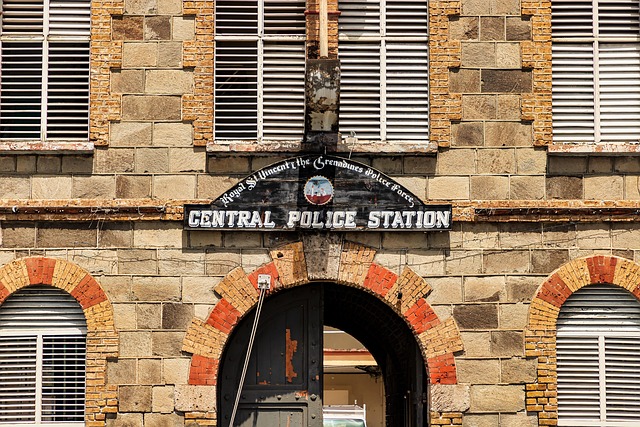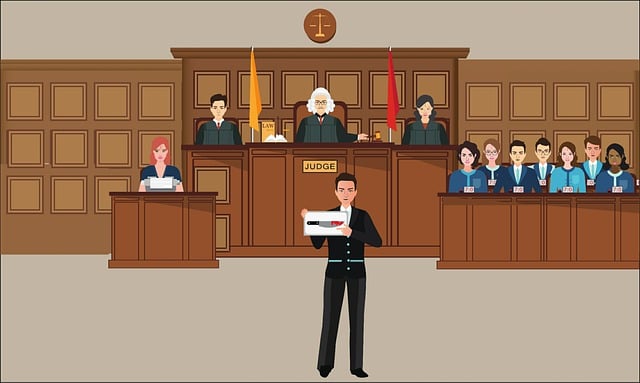Environmental Crime Trials focus on offenses like pollution and habitat destruction, using complex scientific evidence. Jury trials are crucial for public accountability, with prosecutors needing to prove intentional or reckless environmental damage beyond a reasonable doubt. While plea bargains expedite justice, they spark debate due to potential opacity and company strategies to avoid indictment, raising questions about transparency and genuine accountability. Defendants must weigh swift resolution against potential for greater transparency via jury trials, which enhance public trust but are time-consuming and expensive. Key factors like evidence strength and strategic decisions between plea bargains and trials significantly impact outcomes, with strong scientific data crucial for convincing judges and juries. Future trends suggest a shift towards more efficient mechanisms, potentially decreasing trials and increasing plea bargains to streamline processes while holding polluters accountable.
Environmental Crime Trials: Uncovering the Legal Landscape of Eco-Justice
In an era where environmental degradation demands urgent action, understanding the intricacies of environmental crime trials is crucial. This article delves into the unique legal domain of these cases, examining key dynamics like plea bargaining and its impact on prosecution strategies. We explore the pros and cons of going to trial for environmental offenses, analyze influential outcome factors, and glimpse future trends shaping environmental justice through enhanced legal processes. Unraveling Plea Bargain Vs Trial in Criminal Law offers insights into navigating this complex landscape.
- Understanding Environmental Crime Trials: A Unique Legal Domain
- The Role of Plea Bargaining: Incentives and Impact on Environmental Cases
- Pros and Cons of Going to Trial for Environmental Offenses
- Key Factors in Environmental Crime Trial Outcomes
- Future Trends: Enhancing Justice in Environmental Lawsuits
Understanding Environmental Crime Trials: A Unique Legal Domain

Environmental Crime Trials represent a specialized domain within criminal law, focusing on offenses that harm our planet, from pollution to habitat destruction. Unlike traditional plea bargain vs trial scenarios in general criminal defense, these cases often involve complex scientific evidence and have significant impacts on communities and ecosystems. The process encompasses all stages of the investigative and enforcement process, demanding expertise in environmental science, forensics, and legal strategy.
Jury trials play a pivotal role in this domain, as they ensure public accountability and awareness. Prosecutors must prove beyond a reasonable doubt that defendants intentionally or recklessly caused environmental damage. This rigorous standard reflects the severity of these crimes and the delicate balance between justice and the preservation of our natural world for future generations.
The Role of Plea Bargaining: Incentives and Impact on Environmental Cases

In environmental crime trials, the role of plea bargaining is a complex issue that intersects criminal law with the unique challenges of white-collar and economic crimes. Plea bargain agreements offer defendants an alternative to a trial, where they can avoid the public scrutiny and potential consequences of a conviction at trial by pleading guilty to a lesser charge or accepting a negotiated sentence. This strategy has been hailed for its ability to streamline judicial processes and secure unprecedented track records in environmental cases, where perpetrators might otherwise evade accountability due to the intricate nature of the crimes.
However, critics argue that plea bargaining can lead to a lack of transparency and may encourage defendants to avoid responsibility for their actions. In some instances, companies accused of environmental crimes use plea bargains as a mechanism to avoid indictment, choosing to settle with regulatory bodies rather than face the full weight of criminal prosecution. This raises questions about the effectiveness of such agreements in ensuring justice and deterring future offenses, especially when the incentive for a company might be to minimize financial and reputational damage rather than accept genuine culpability.
Pros and Cons of Going to Trial for Environmental Offenses

When facing environmental offenses, defendants often grapple with a crucial decision: accept a plea bargain or go to trial. While plea bargains can offer a path to swift resolution and potentially less severe penalties, they may not allow for the full disclosure of facts and responsibility that jury trials enable. In environmental crime cases, where complex scientific evidence and public interest are at play, going to trial can serve as a powerful tool for achieving extraordinary results. It allows all stages of the investigative and enforcement process to be scrutinized in front of a jury, fostering transparency and accountability.
However, trial comes with its own set of challenges. It is time-consuming, expensive, and may not always guarantee a favorable outcome. Defendants risk a harsher sentence if found guilty, especially when dealing with stringent environmental regulations. Yet, for those committed to upholding environmental standards, the potential impact on public perception and future legal strategies could outweigh the cons, making jury trials an attractive option despite their complexities.
Key Factors in Environmental Crime Trial Outcomes

In Environmental Crime Trials, several key factors significantly influence outcomes, especially when comparing plea bargain agreements to full trials in criminal law. One crucial aspect is the strength and quality of evidence presented by prosecutors. This includes scientific data, expert testimony, and direct evidence linking corporate or individual defendants to environmental infractions. The complexity of environmental cases often means that robust documentation is essential to convincing judges and juries.
Another factor is the strategic decisions made by both defense attorneys and prosecutors. For his clients, the choice between a plea bargain—which might offer reduced charges or sentences in exchange for a guilty plea—and a trial can have profound implications. While a plea bargain can lead to quicker resolutions and potentially less severe consequences, going to trial allows for the defense to challenge evidence, raise legal defenses, and sway public opinion, which could be beneficial for both corporate and individual clients facing environmental accusations. This strategic decision also engages the philanthropic and political communities, as these cases often spark public interest and scrutiny of regulatory bodies and businesses.
Future Trends: Enhancing Justice in Environmental Lawsuits

As environmental crimes become increasingly complex and widespread, future trends in environmental lawsuits are expected to reflect a shift towards more innovative and efficient justice mechanisms. One notable evolution is the potential reduction in trials and an increase in plea bargains. This approach could streamline legal processes, which are often lengthy and costly, particularly in cases involving multiple corporate and individual clients across the country. By encouraging plea bargains, prosecutors can secure quicker resolutions while still holding polluters accountable for their actions.
This shift may also foster a more cooperative environment between the philanthropic and political communities. As environmental advocates push for stricter regulations, businesses might be incentivized to proactively address ecological concerns through settlement agreements rather than prolonged litigation. This strategy could lead to better compliance and more sustainable practices, ultimately enhancing the overall environmental justice across different regions.
Environmental crime trials present a complex yet essential aspect of environmental justice. By examining plea bargaining and trial outcomes, we uncover strategies that can lead to more effective enforcement and deterrence. As we look ahead, embracing innovative approaches and enhancing legal frameworks will be crucial for navigating the challenges of environmental prosecution. Understanding these dynamics is vital for balancing accountability with pragmatic solutions in the ongoing fight against ecological crimes. This analysis highlights the importance of choosing between plea bargains and trials in criminal law, ultimately aiming to strengthen environmental protection efforts.






